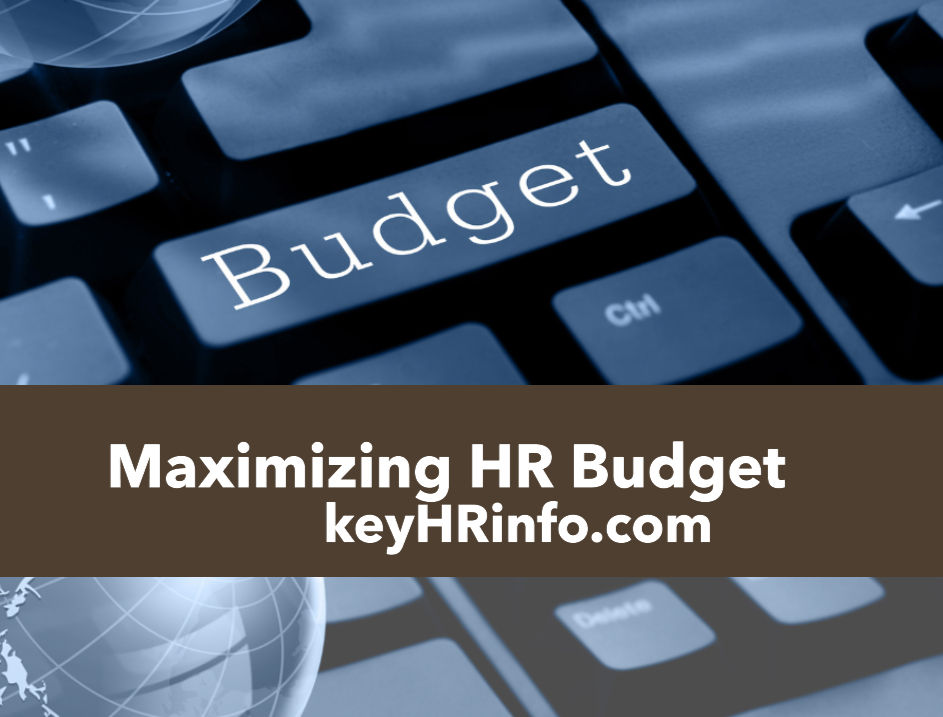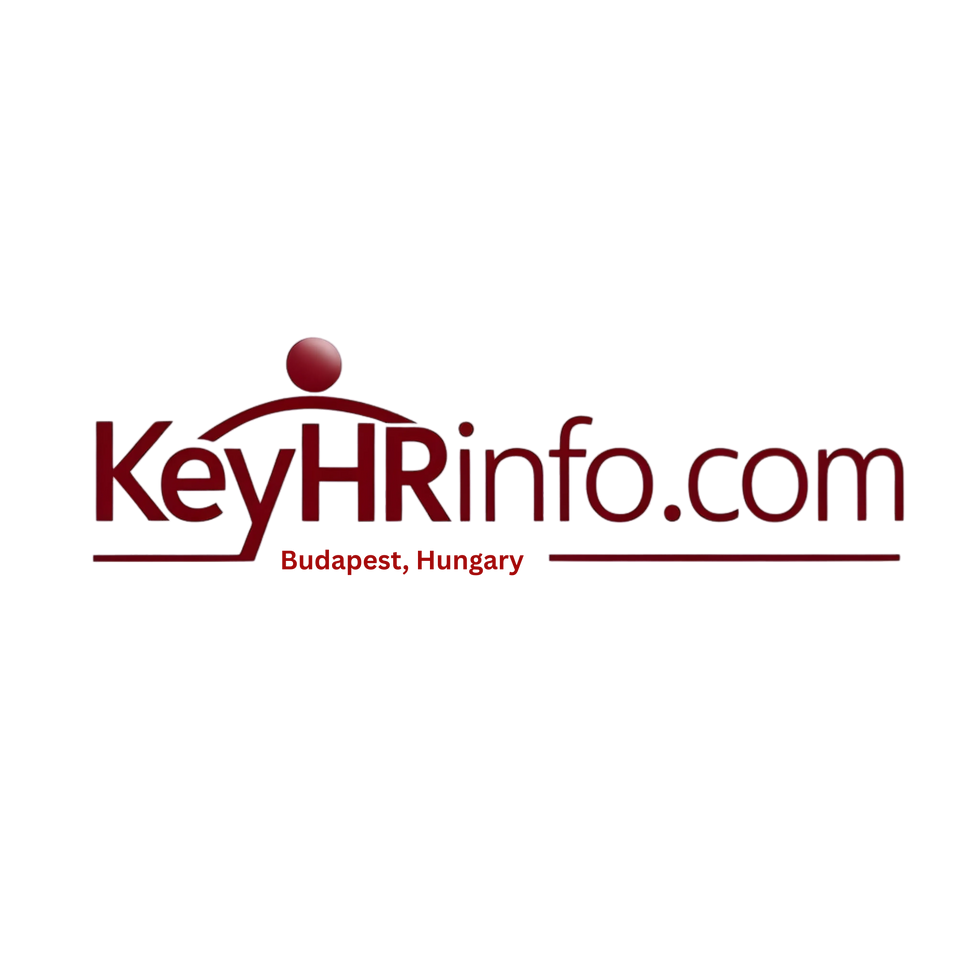Hidden ROI in HR Budget for Optimal Company Growth
- Team of keyHRinfo.com
- May 19, 2025
- 5 min read
keyHRinfo.com is a Hungarian payroll and HR consultancy company for SME and startups.
As company owners, understanding how to effectively utilize your HR budget can significantly impact your business growth. The allocation of financial resources within your HR department is crucial, not only for operational efficiency but also for fostering a positive workplace culture and ensuring employee satisfaction. A well-planned HR budget is not just an expense; it’s an investment in the future of your organization. This post will delve into various strategies to maximize your HR budget and demonstrate how making informed decisions can lead to a favorable return on investment (ROI).
Understanding the HR Budget
The HR budget encompasses all financial resources designated for human resources activities within an organization. This typically includes expenses related to recruitment, training, salaries, benefits, employee engagement, and compliance with labor laws.
A clear understanding of what constitutes an HR budget enables company owners to make better decisions about where to allocate funds. By breaking down the components of the budget, organizations can identify potential areas for cost savings while also enhancing employee satisfaction and productivity.

The Importance of Setting Priorities
Establishing priorities is essential when creating an HR budget. Company owners must evaluate which areas within HR require immediate funding and which can be revisited later.
For instance, investing in employee training programs can yield long-term benefits, equipping staff with the skills needed to excel in their roles. Conversely, while benefits or recruitment costs are necessary, those might require more scrutiny to ensure they are justified by the expected returns.
Setting clear priorities can lead to a more streamlined and effective HR budget.
Conducting a Cost-Benefit Analysis
Before allocating funds to any HR initiative, it is prudent to conduct a cost-benefit analysis. Assess the potential costs associated with a specific project against the expected benefits it may bring.
For example, implementing a new HR software system might involve significant initial costs, but increased efficiency and reduced administrative time could quickly surpass that investment. By carefully weighing the benefits against the costs, company owners can make informed choices that enhance the overall efficiency of their HR budget.

Emphasizing Employee Training and Development
Investing in employee training and development is one of the most effective ways to maximize your HR budget. A budget that allocates resources for employee improvement contributes not only to individual employee performance but also to the overall productivity of the organization.
Training programs can equip employees with new skills and knowledge, fostering a culture of continuous improvement and innovation. Additionally, employees are often more satisfied and engaged when they feel their employer cares about their personal and professional growth.
Furthermore, consider the return on investment when making decisions about employee training. A well-trained workforce will be more effective and efficient, ultimately leading to better business outcomes.
Enhancing Employee Benefits
Employee benefits represent a significant part of the HR budget and can influence employee satisfaction and retention. By enhancing employee benefits, company owners can drive engagement and loyalty, reducing turnover and its associated costs.
However, it's essential to select the right benefits that resonate with your workforce. Conducting surveys to understand employee preferences can guide employers in selecting benefits that align with their team's needs, whether it's health insurance, retirement plans, or wellness programs.
Such investments can yield long-term ROI by not only retaining top talent but also attracting skilled employees who appreciate the value of a solid benefits package.

Implementing Technology Solutions
In today’s digital age, implementing technology within your HR functions can enhance operational efficiency and save costs—two critical components of an effective HR budget.
Automation tools can streamline repetitive tasks such as payroll processing, benefits administration, and employee record keeping. This not only allows HR personnel to focus on strategic initiatives but also reduces the likelihood of errors.
Additionally, investing in an efficient HR management system can provide valuable insights into employee performance and engagement levels, better informing HR strategies and decisions. By adopting the right technology, companies can significantly maximize their HR budgets while improving productivity.
Measuring Success and Adjusting Strategies Regularly
Maximizing an HR budget is not a one-time effort. Regularly measuring the success of various HR initiatives is essential to understand their effectiveness and ROI.
Setting key performance indicators (KPIs) to assess employee engagement, turnover rates, and training effectiveness can help identify which areas of the HR budget are working well and which are not.
By analyzing this data, company owners can adjust their budget allocations and strategies accordingly. This commitment to regular assessment ensures that the HR budget continues to align closely with organizational goals and supports ongoing company growth.
Building a Strong Employer Brand
Investing in employer branding can yield substantial returns in terms of attracting top talent and enhancing employee morale. A strong employer brand helps position an organization as an attractive place to work, which can reduce recruitment costs significantly.
Companies should consider showcasing their unique culture, values, and benefits to potential candidates through various channels. This may include employee testimonials, case studies, or highlighting award recognitions for workplace excellence.
By creating a compelling employer brand, organizations can ensure a robust recruitment pipeline, which ultimately supports the HR budget by reducing the resources needed for hiring and onboarding new employees.
Maximizing your HR budget is an ongoing journey that demands careful planning, analysis, and flexibility. By prioritizing initiatives that align with business goals, conducting thorough cost-benefit analyses, investing in employee development, enhancing benefits, implementing technology, and building a strong employer brand, company owners can create a potent HR strategy that yields significant ROI.
In the ever-evolving landscape of business, an effective HR budget not only supports day-to-day operations but also sets the foundation for long-term success. Embrace the potential of your HR budget, and ensure it serves as a strategic asset for your organization's growth and development.
By taking a proactive approach to managing HR finances, you can unlock the hidden value of your investment in human resources, driving both employee satisfaction and overall company performance.
You an read more about this here:
Maximizing HR Budget: Strategies for Cost-Effective Workforce Management
Optimizing HR Budget Allocation: Resources for Workforce Success
The Connection between HR and Finances
FAQ about ROI in HR Budget
What is ROI in HR Budget?
ROI in HR Budget refers to the return on investment that a company gets from its human resources spending, such as hiring, training, and employee benefits.
Why is measuring ROI in HR important?
Measuring ROI in HR is crucial as it helps businesses understand the value and impact of their human resources initiatives on their overall profitability.
How can ROI in HR be calculated?
ROI in HR can be calculated by dividing the net benefit (benefit minus cost) of an HR initiative by its cost, then multiplying the result by 100 to get a percentage.
What factors can affect ROI in HR?
Factors that can affect ROI in HR include the quality of hires, employee turnover rates, the effectiveness of training programs, and the level of employee engagement.
Can ROI in HR be improved?
Yes, ROI in HR can be improved by investing in effective hiring processes, comprehensive training programs, and initiatives that boost employee engagement and retention.
keyHRinfo.com offers innovative HR and Payroll services for startups from reviewing the needs, to the solution proposal, implementation and operational phases. Also ongoing assistance for operational, audit and Mergers and Acquisitions.
keyHRinfo.com Contact: viola.pokhe@keyhrinfo.com
_edited.png)



Comments